Cambodia: The Khmer Rouge's Year Zero Genocide [Graphic Images]
The only two surviving leaders of Cambodia's Khmer Rouge regime have been sentenced to life imprisonment after being found guilty of crimes against humanity.
Khieu Samphan, the 83-year-old former head of state, and Nuon Chea, 88, deputy to the dictator Pol Pot, were sentenced over alleged crimes committed in the 1970s in which up to two million Cambodians are believed to have died.
The two octogenarians were leading exponents of the totalitarian fantasy: Year Zero.
The idea behind Year Zero was that the existing society within Cambodia had to be completely destroyed or discarded and a new revolutionary culture had to replace it from scratch. All history of the nation Year Zero was deemed largely irrelevant and had to be purged and replaced from the ground up.
In Cambodia, teachers, artists, and intellectuals were especially singled out and executed during the purges accompanying Year Zero. Millions were forced out of the cities to create a agaranian utopia, of whom thousands subsequently starved.
The tribunal's chief judge, Nil Nonn, asked both men to rise for the verdicts but the frail Nuon Chea, wearing dark sunglasses, said he was too weak to stand from his wheelchair and was allowed to remain seated.
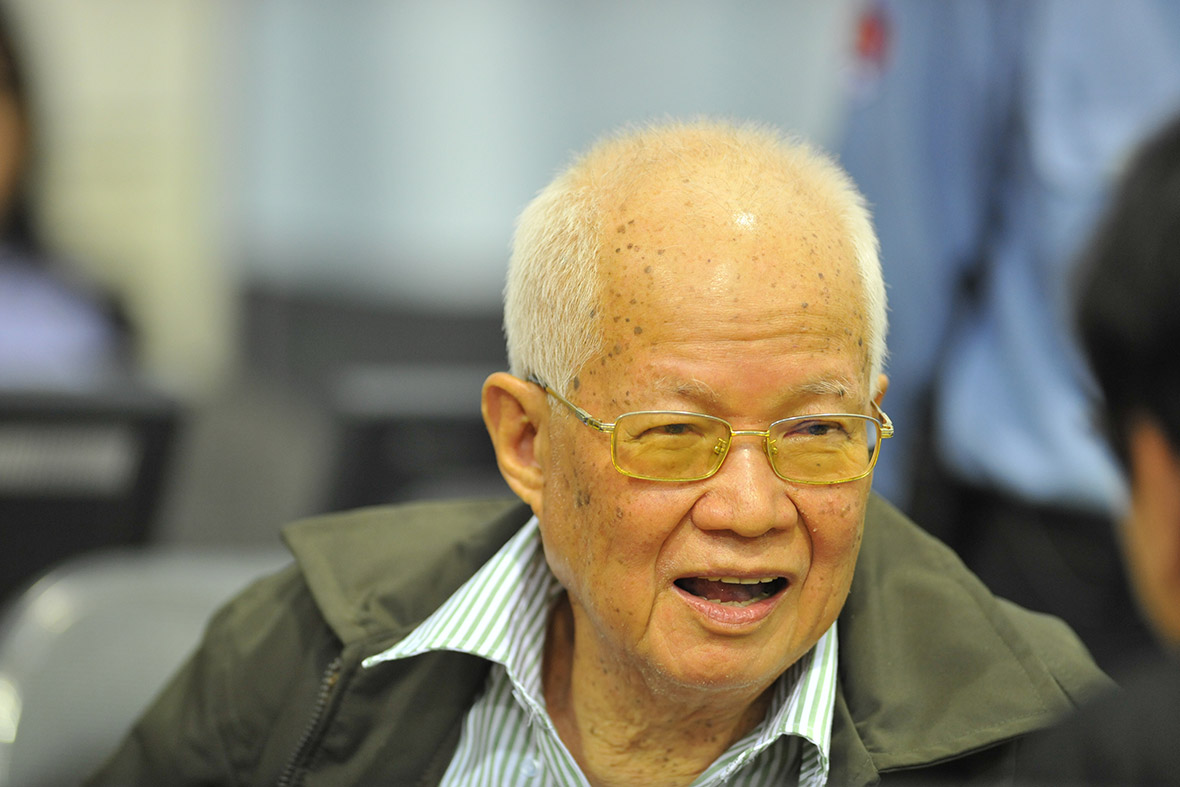

Nearly a quarter of the population — about 1.7 million people — died under rule of the Khmer Rouge through a combination starvation, medical neglect, overwork and execution when the group held power in 1975-79.
Survivors of the regime travelled from across the country to witness the historic day, filling the several hundred seats available to the public at the tribunal.
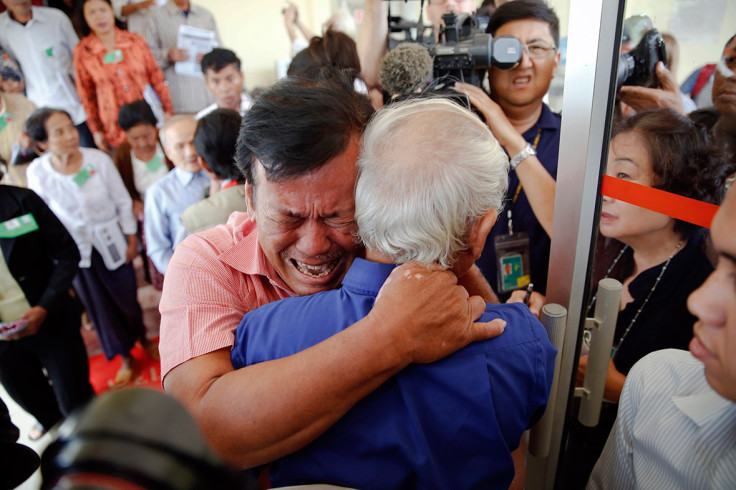
Many have criticised the slow justice, however, and its cost. The tribunal, formally known as the Extraordinary Chambers in the Courts of Cambodia, began operations in 2006. It has since spent around £120 million.
The current trial began in 2011, with four senior Khmer Rouge leaders. Only two remain. Former Foreign Minister Ieng Sary died in 2013, while his wife, Social Affairs Minister Ieng Thirith, was deemed unfit to stand trial due to dementia in 2012. The group's top leader, Pol Pot, died in 1998.

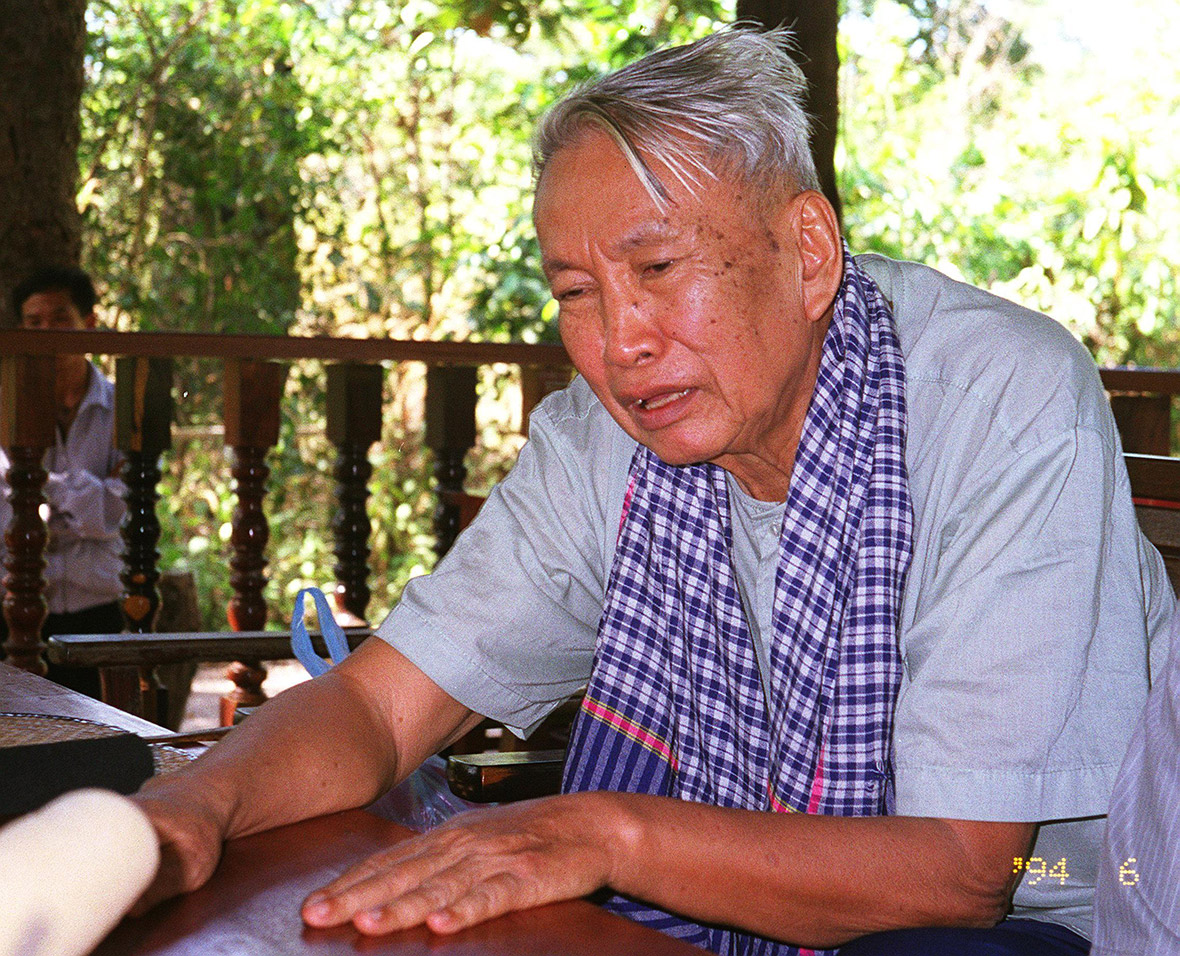
Khieu Samphan has acknowledged that mass killings took place. But testifying before the court in 2011, he claimed he was just a figurehead who had no real authority. He denied ordering any executions himself, calling the allegations a "fairy tale". Instead, he blamed Pol Pot for its extreme policies.
Nuon Chea, who is known as Brother No 2 for being Pol Pot's trusted deputy, had also denied responsibility, testifying in 2011 that Vietnamese forces — not the Khmer Rouge — had killed Cambodians en masse. "I don't want them to believe the Khmer Rouge are bad people, are criminals," he said of those observing to the trial. "Nothing is true about that."
Both men now face a second trial, reportedly due to start in either September or October, this time on charges of genocide. The trial is expected to take years to complete.

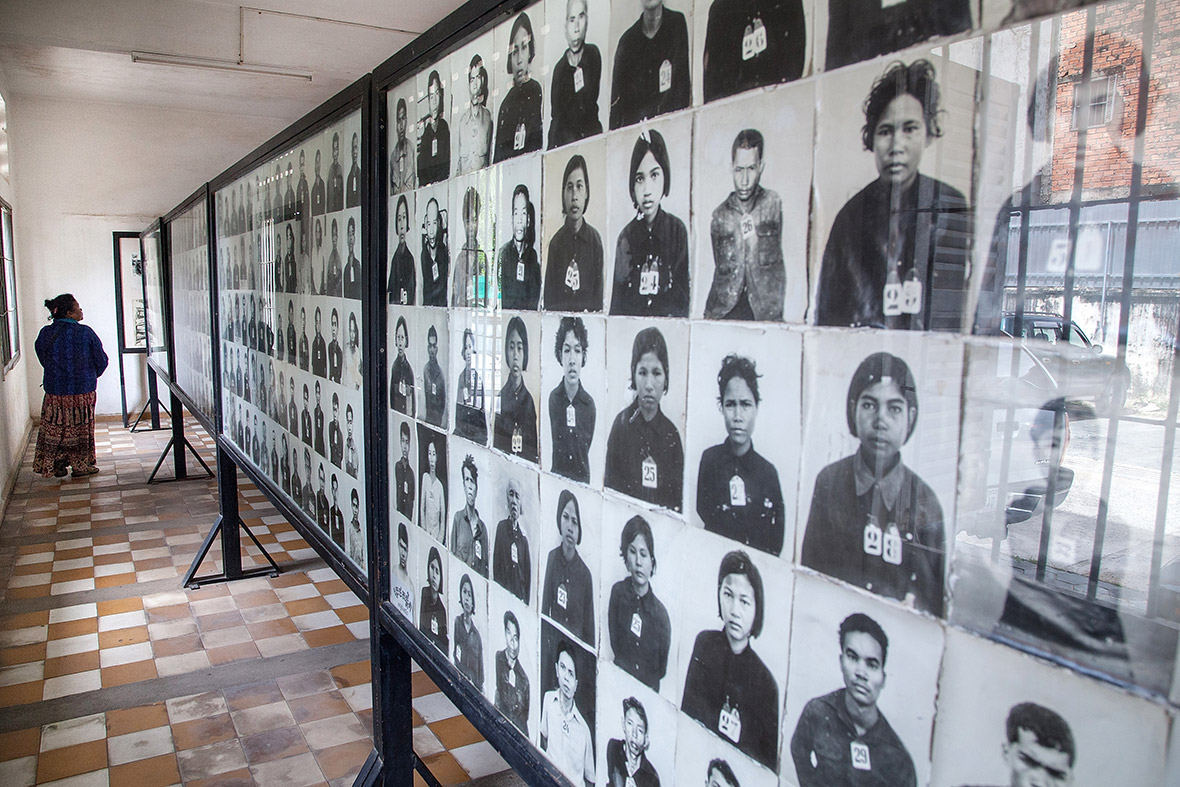

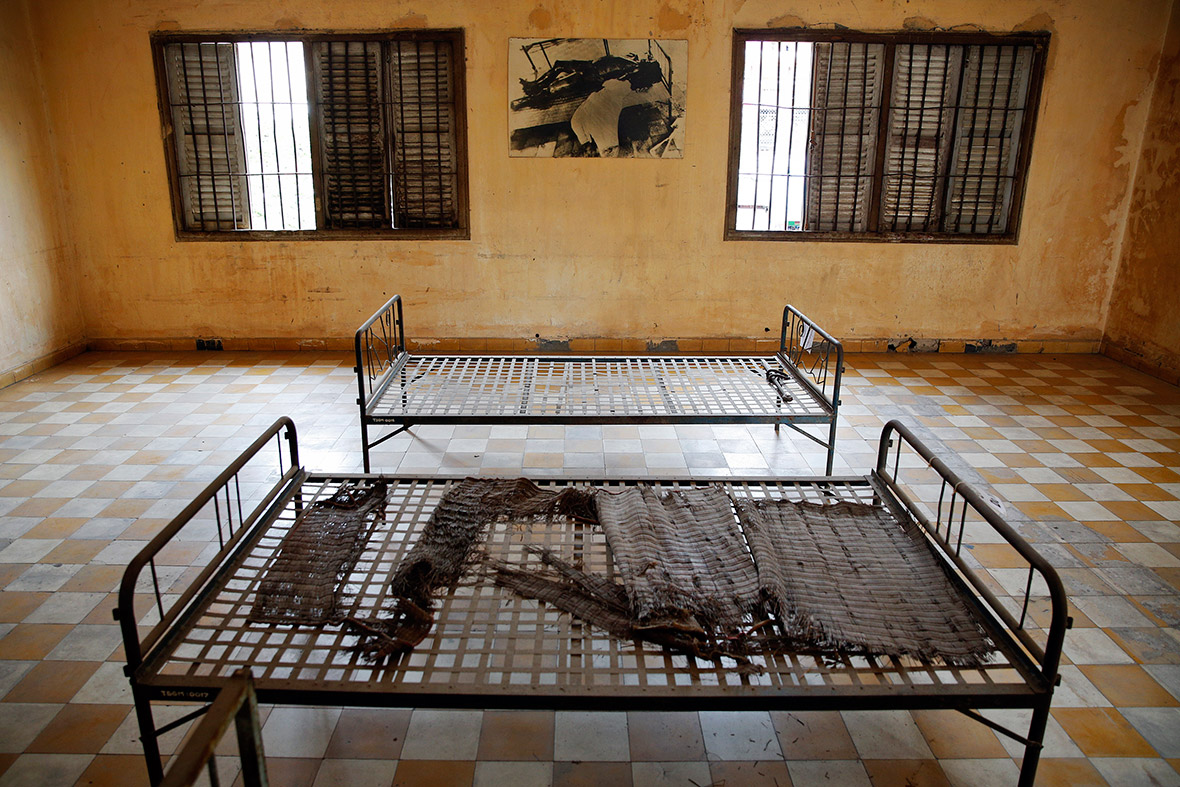


The Khmer Rouge captured Phnom Penh on 17 April 1975 after a siege. They carried out a radical programme of reforms that included confiscating all private property and relocating people from cities to collective farms. Families were split up, schools were outlawed, currency was abolished and forced labour was widespread.
Every Cambodian was forced to become a farmer, but as the city dwellers had no agricultural knowledge, famine was inevitable.
The Khmer Rouge executed huge numbers of people: those they suspected of being spies, anyone carrying out any religious observance, and anyone they thought might be intellectuals – such as people wearing glasses.
The Khmer Rouge regime fell in 1979, after a failed invasion of Vietnam. Between 1.4 and 2.2 million people died of execution, starvation, exhaustion or lack of medical care during the Khmer rouge regime.
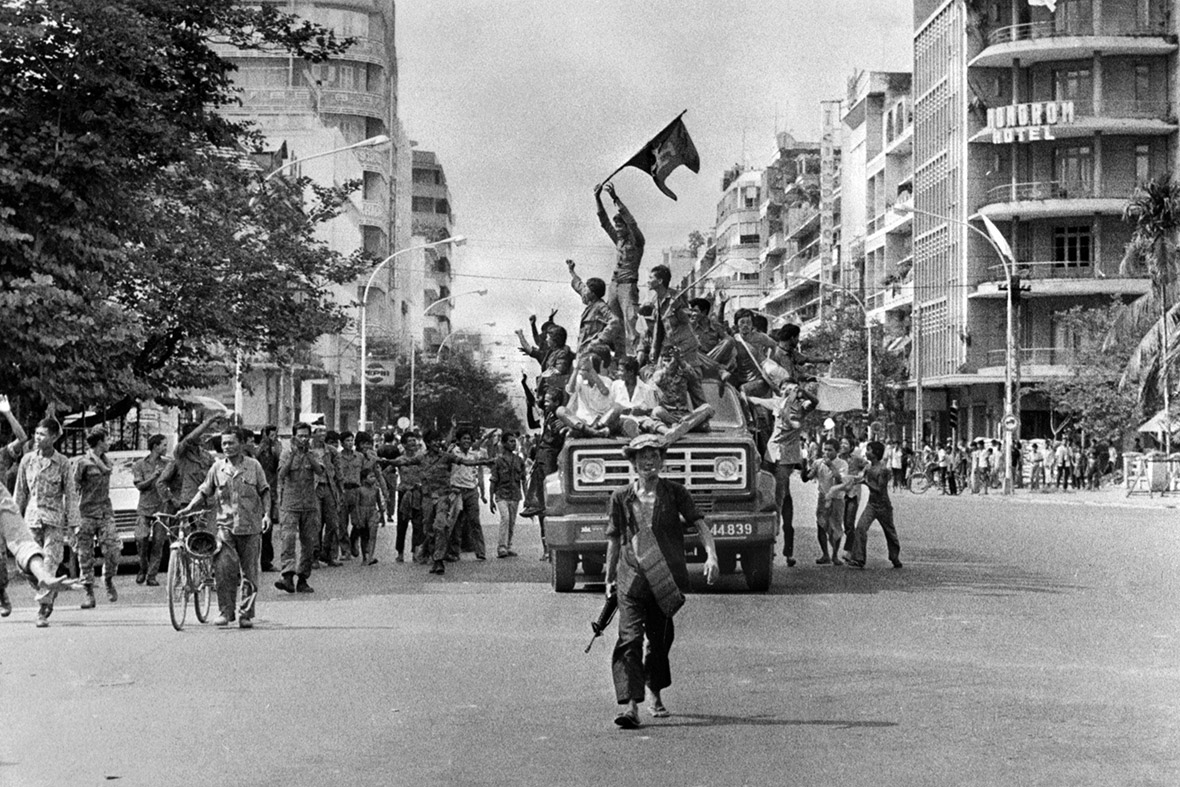
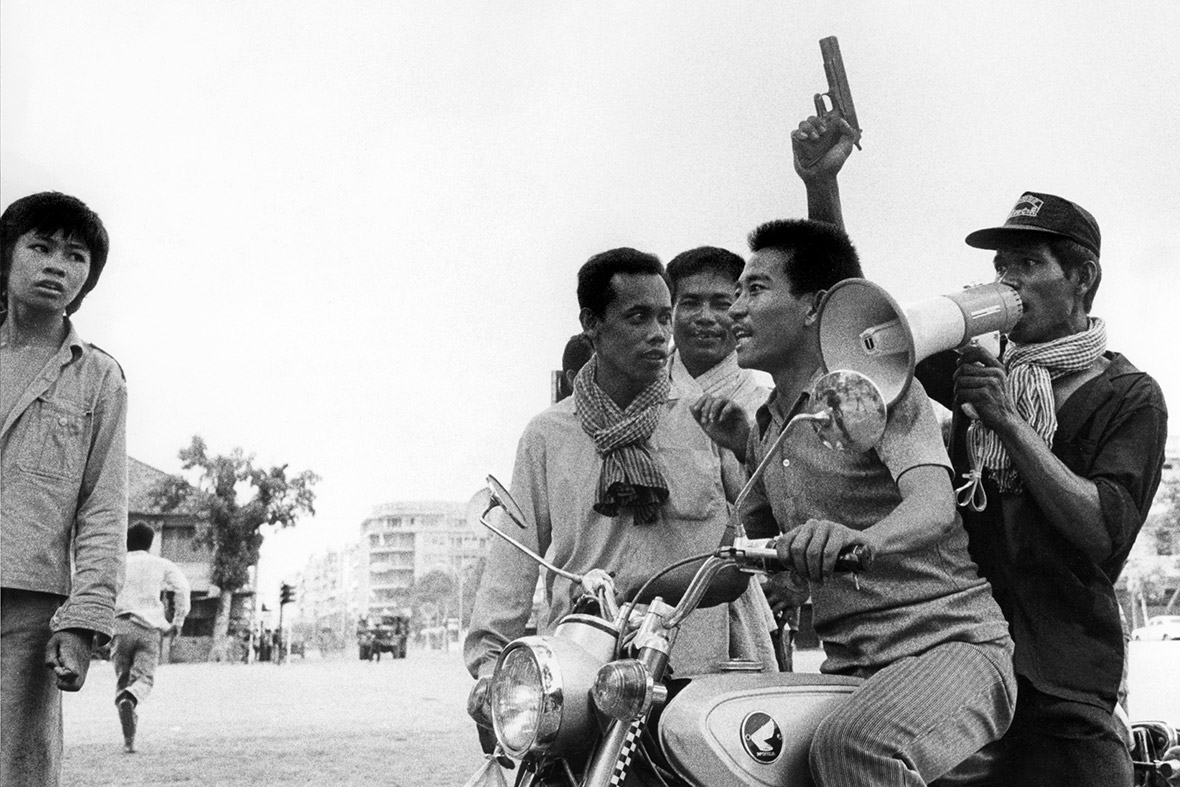
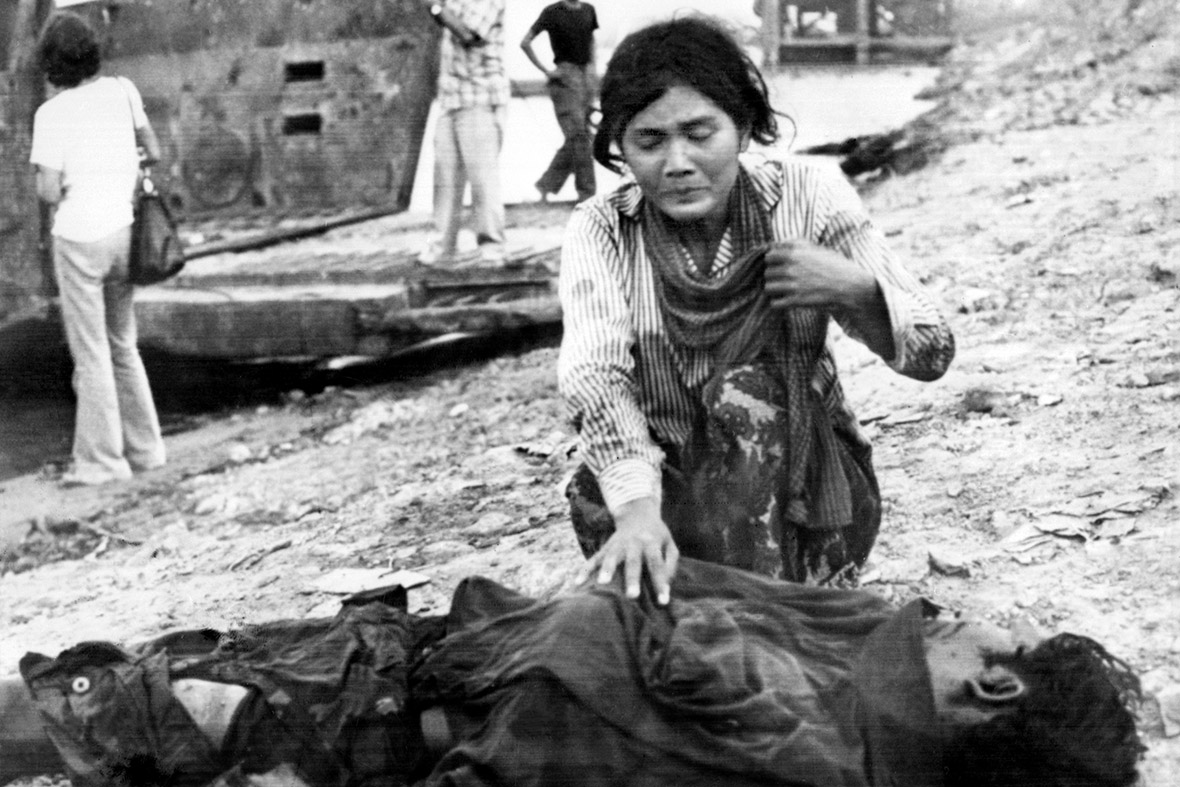
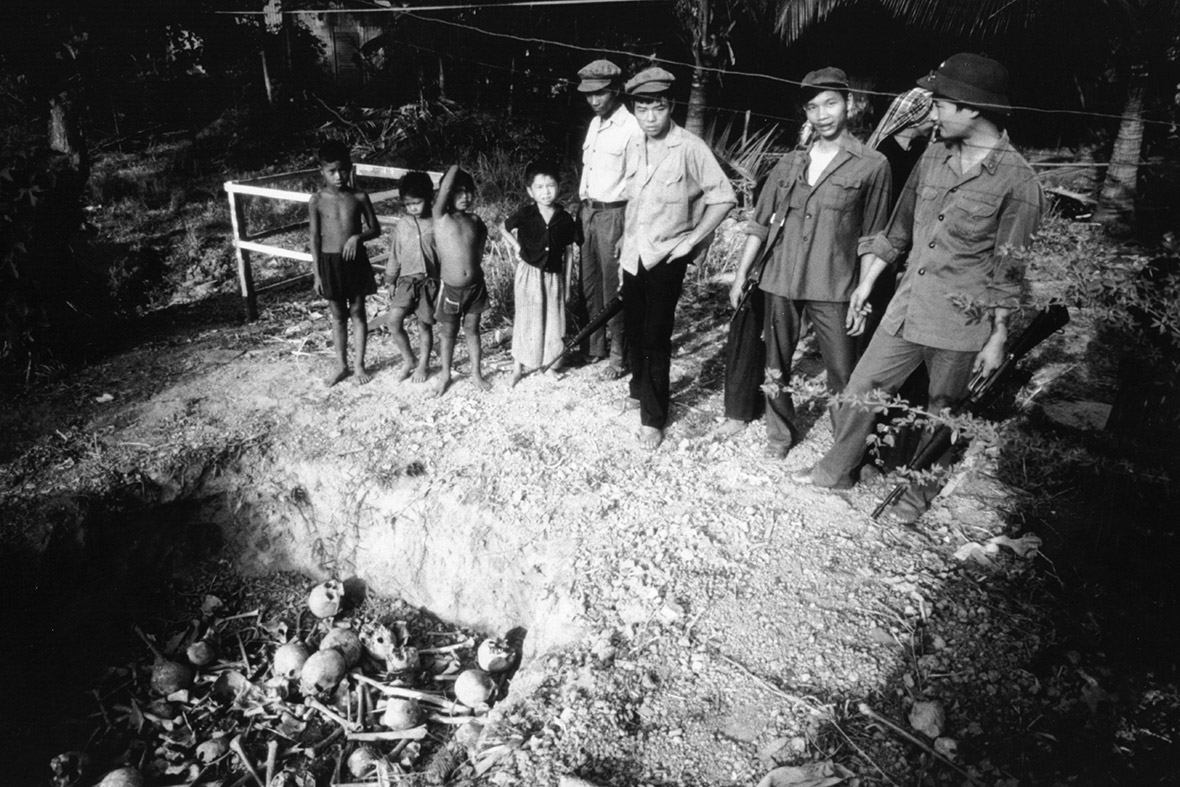
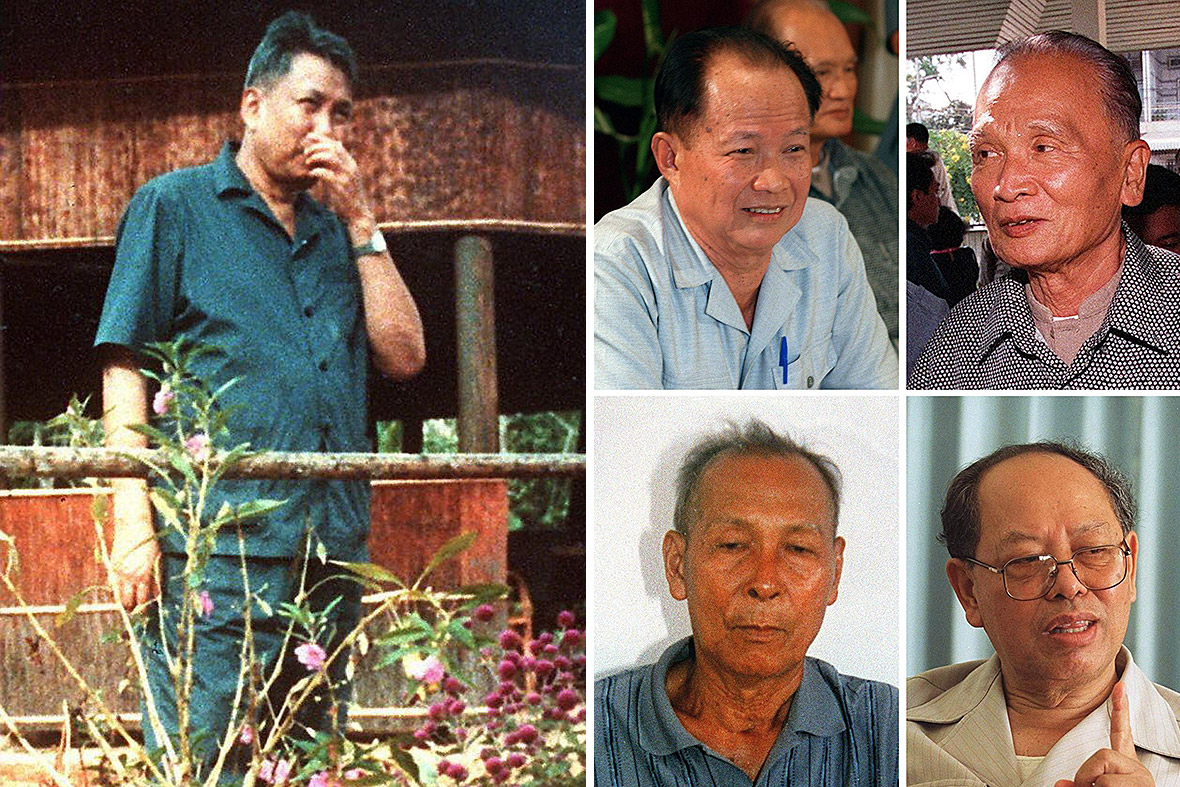

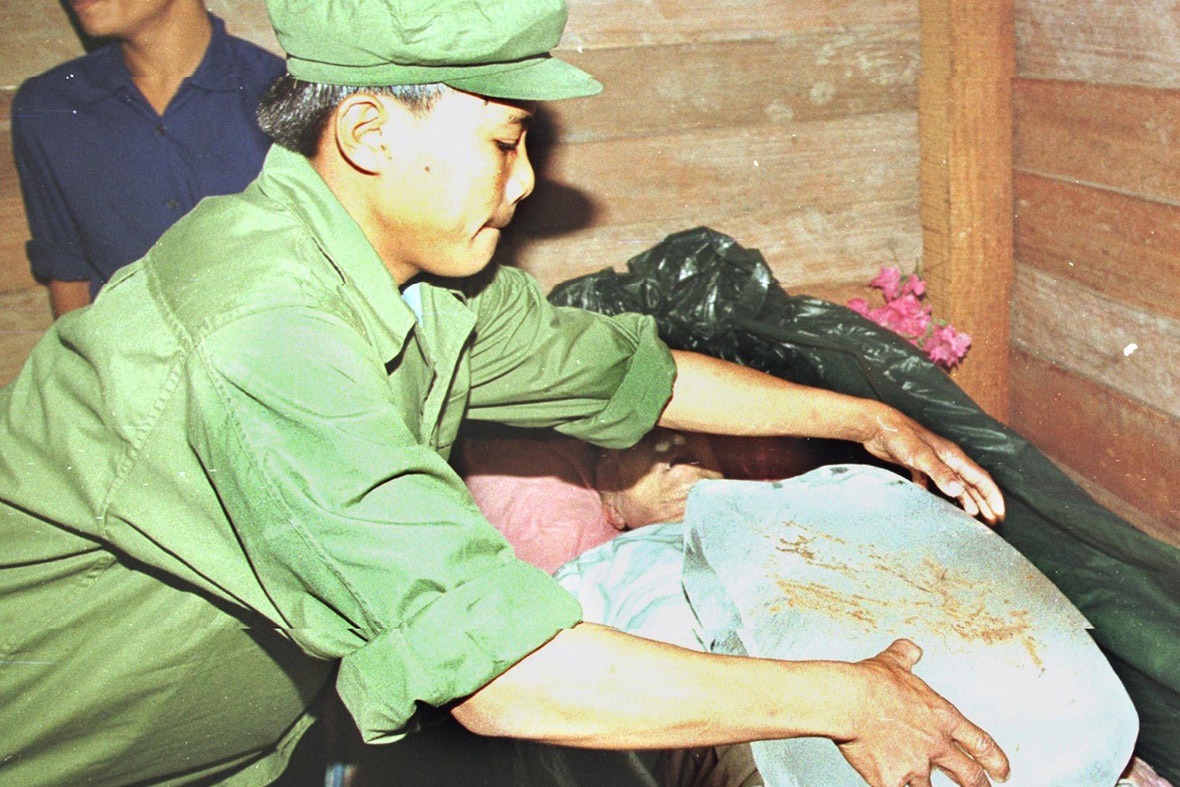
© Copyright IBTimes 2025. All rights reserved.






















